We found a solution in historical Lviv to the Tisza's sea of garbage
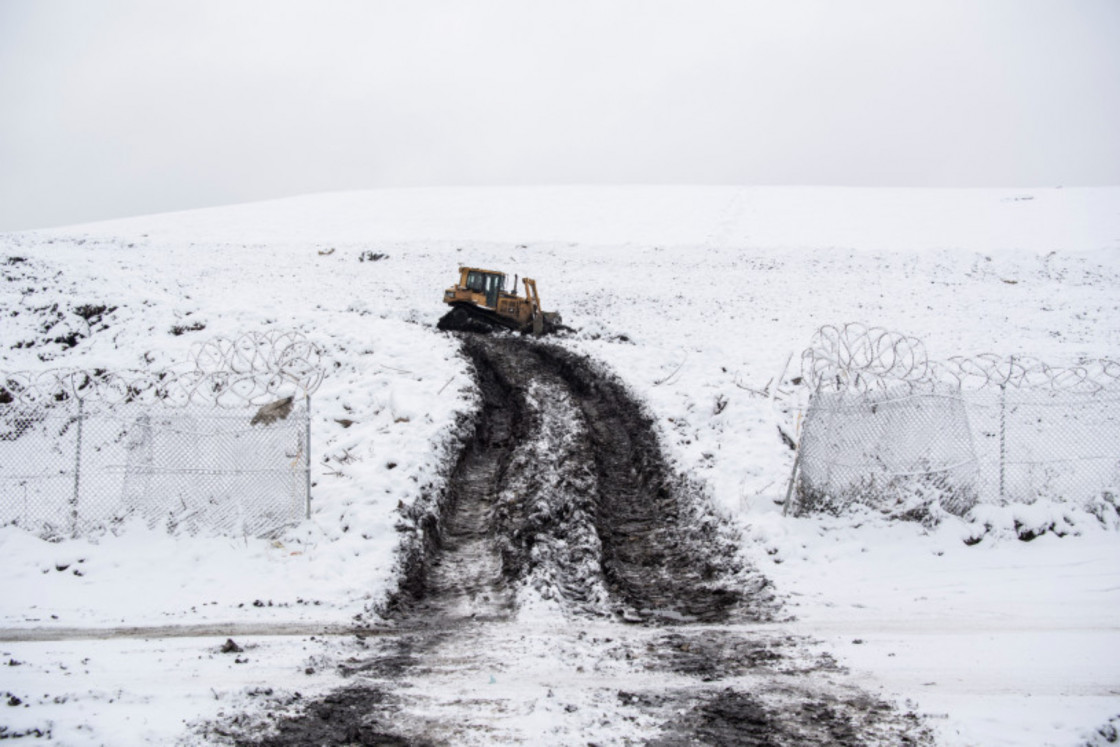
There is a historic city in Ukraine with 800,000 inhabitants, and its highest point is a garbage dump. Such could be the opening line of an ad for disaster tourism in Lviv, but in fact, we're talking about a promising reclamation site where an attractive park is planned to be in a few years. The city will also get a sustainably cost-effective and environmentally friendly waste management system out of it. The solution could also serve as an example for Transcarpathia, where, without proper waste processing, garbage is sure to continue coming into Hungary. Plans are already in place to tackle the problem – and Ukraine is largely looking to the EU for funding. The leadership of the region, which has a population of 1.2 million, says that building waste treatment plants could be completed by 2030 for €100 million, after which the system would become self-sustaining on a market basis. The industry is more pessimistic about the business model, but with a moderate budgetary supplement it could work – and it's certainly worth it when you factor in the elimination of river pollution. Translation by Dominic Spadacene.
The Tisza River is undeniably still bringing plastic into Hungary from Ukraine, but the leadership of Transcarpathia says they have very specific plans to transform this river of plastic into a pristine Tisza within a few years. In the spring of 2021, we released a video report on the trail of litter beginning from the source of the river to the border. However, in order to prevent municipal waste from ending up in the river, waste management needs to be addressed not only along the Tisza but also over a much wider area, in Transcarpathia and beyond.
And a quick side note: the largest city in Transcarpathia, for example, will only be able to dispose of its municipal waste on-site for another year or two. With a population of 115,000, Uzhhorod is 20 kilometers from the Tisza, but it is feared that if the problem of waste disposal and processing is not resolved, some of that garbage could end up in the river as well.
"Twenty years ago, waste collection consisted of a truck pulling up in front of the houses, honking the horn, people running out with their buckets, and dumping their garbage on a flatbed," said the Chairman of the Transcarpathian Regional Council. Volodymyr Chubirko only took up his post at the end of November – his second time – but he has been working on the redevelopment of waste management for more than a decade.
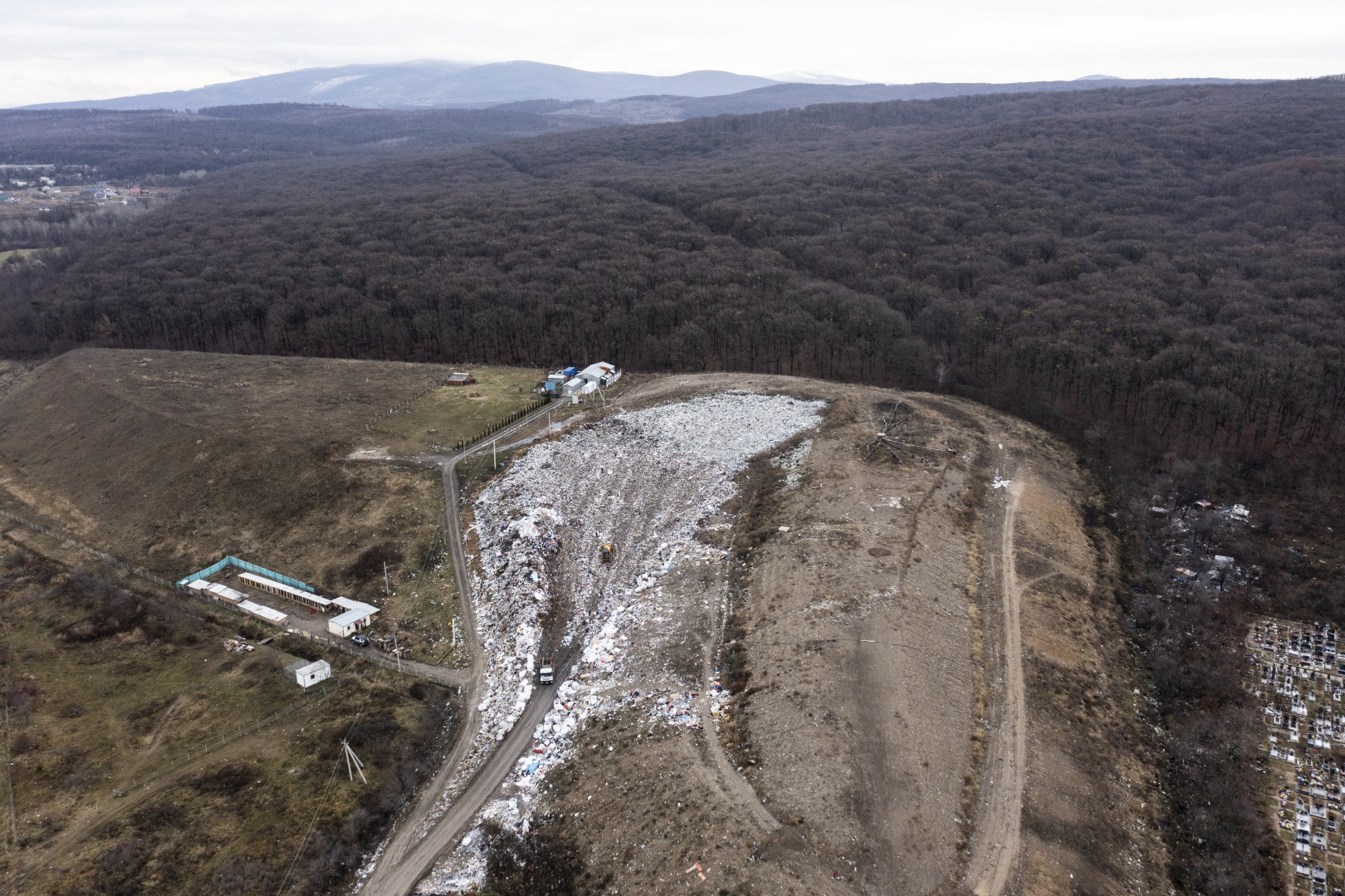
It was through Chubirko's intervention that the formerly Austrian, now Czech-owned waste management company AVE came to Transcarpathia. "We wanted to show that it is indeed possible to carry out garbage collection on a market basis in Transcarpathia." But this was only partly successful: in the less mountainous area of southern Transcarpathia, where Uzhhorod (115,000 inhabitants), Mukachevo (85,000), Khust (28,000), Vynohradiv (25,000), and Berehove (24,000) are located, waste collection operates on a market basis at a cost of about 90 hryvnias (roughly three euros) per household per month. (The bulk of the waste still merely ends up in landfills, which are filling up and not managed in a reassuring manner anyway; the key would be to develop some sort of waste treatment.)
Collection is at least taking place here, but in the more inaccessible, mountainous northern towns and villages, which are less populated, not even charging three times as much would make collection viable, so private companies aren't even interested in undertaking the task. At least seven million euros would also be needed for the fleet of vehicles, and collection would have to be subsidized because a monthly fee of 250-300 hryvnias (31 hryvnias to the euro) would be too expensive for most households there, which earn less as it is.
"I live here, and I'm ready to dispose of garbage responsibly, but it requires an established infrastructure. We've achieved some results, but the fact that garbage is still flowing down the river is a disgrace," Chubirko said.
This self-critical attitude is not uncommon among authorities in Transcarpathia when it comes to municipal waste ending up in the Tisza. Nor can it be said that the problem is being underestimated by officials. True, they are not lobbying Kyiv for the resources needed to solve the problem, but they're turning towards the EU and, to some extent, Hungary.
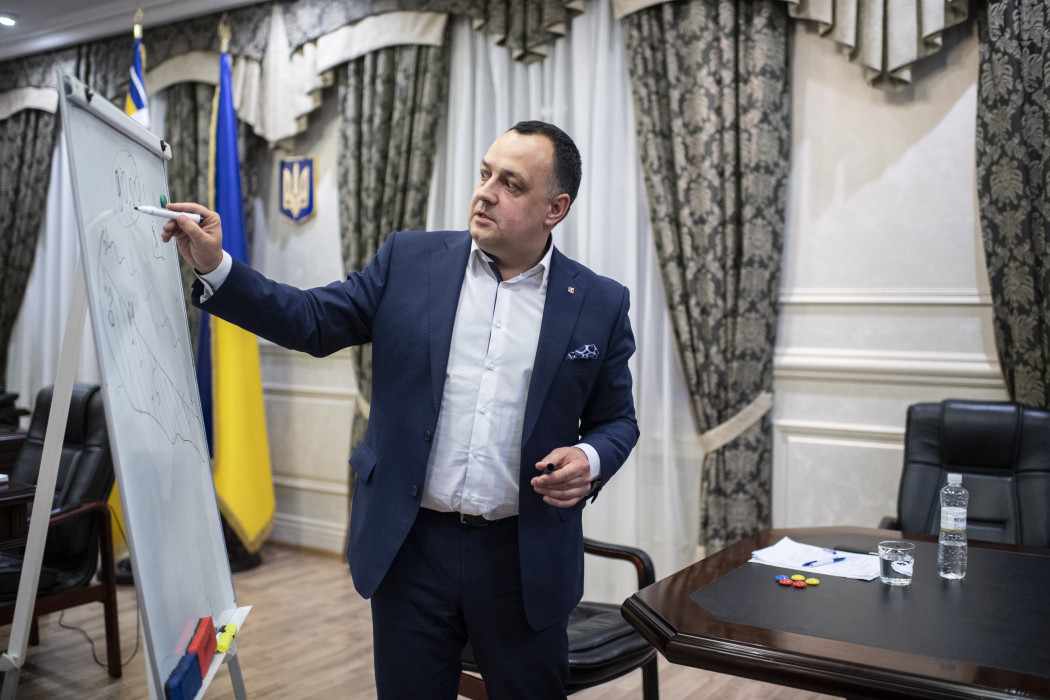
It is no coincidence that the first European Grouping for Territorial Cooperation (EGTC) between an EU member state and a non-EU country was established between Hungary and Ukraine, more precisely between the Municipality of Szabolcs-Szatmár-Bereg County, the Municipality of Kisvárda, and the Transcarpathian Regional Council. The Tisza EGTC was established in 2015 and has provided the region with several grants. Hungary has also contributed €2 million to the €6.5 million budget for the waste treatment plant in the village of Yanoshi.
This cooperation is self-evident given the course of the Tisza River, but not so trivial given the strained relations between Kyiv and Budapest, which are peppered with diplomatic bans. Because of amendments to the language portion of the Ukrainian Education Act – which the Hungarian government believes are stifling Hungarian-language education in Transcarpathian public schools – the Hungarian government blocked ministerial meetings between NATO and Ukraine for some time. Moreover, Kyiv has increasingly perceived separatism in the Hungarian government's policy towards Transcarpathia, in Viktor Orbán's declaration calling for autonomy, and in Hungarian organizations in Transcarpathia.
Of course, ever since Russia's occupation of Crimea and the emergence of breakaway states in eastern Ukraine, Kyiv's sensitivity is understandable to a certain extent, but local Ukrainian politicians also believe that it's important to prevent joint projects from being jeopardized by issues such as last year's raids at the headquarters of the Cultural Alliance of Hungarians in Sub-Carpathia (KMKSZ) and the home of its president, László Brenzovics. (True, Budapest has its share of overreactions similar to those of Kyiv: when a Molotov cocktail and a small bomb exploded at the KMKSZ headquarters in Uzhhorod in 2018, Péter Szijjártó immediately called upon Ukrainian authorities to account for the suppression of extremism, although the Russian intelligence service is at least as likely to be involved in the action.)
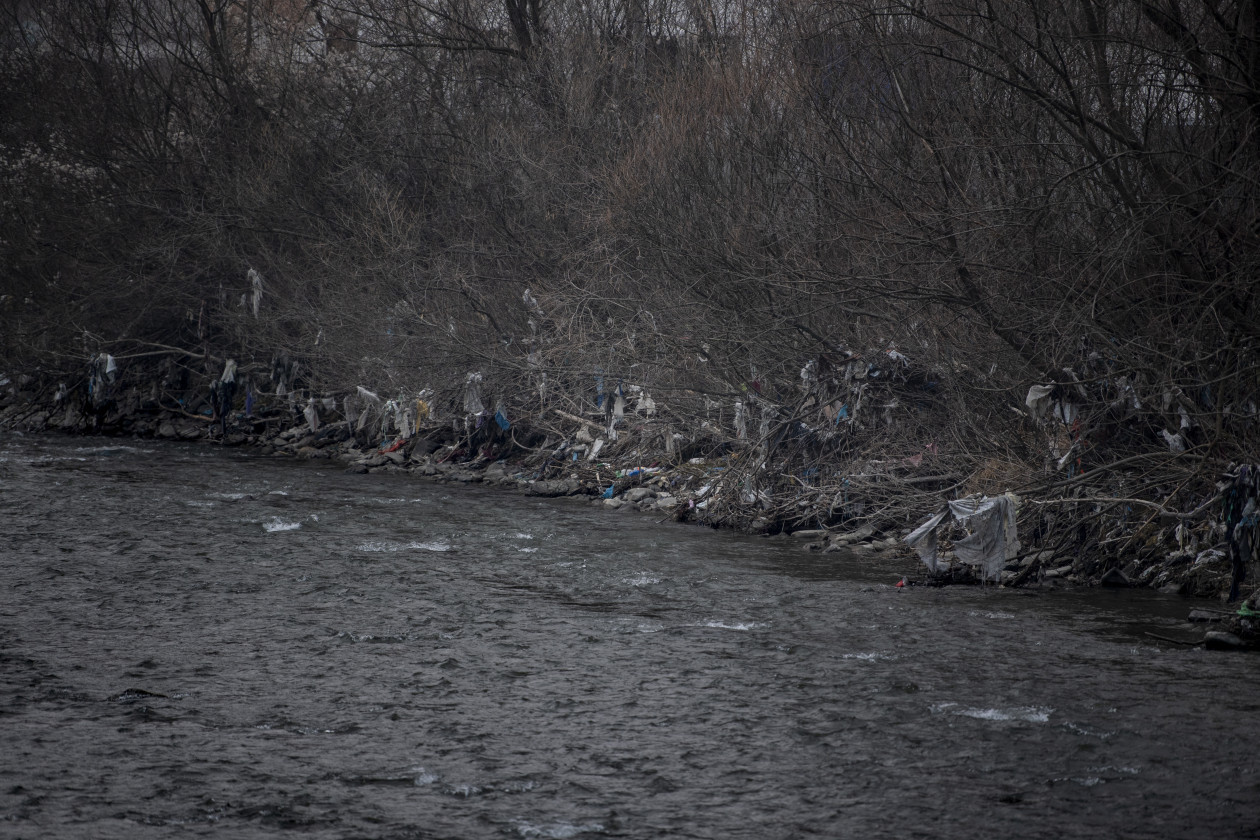
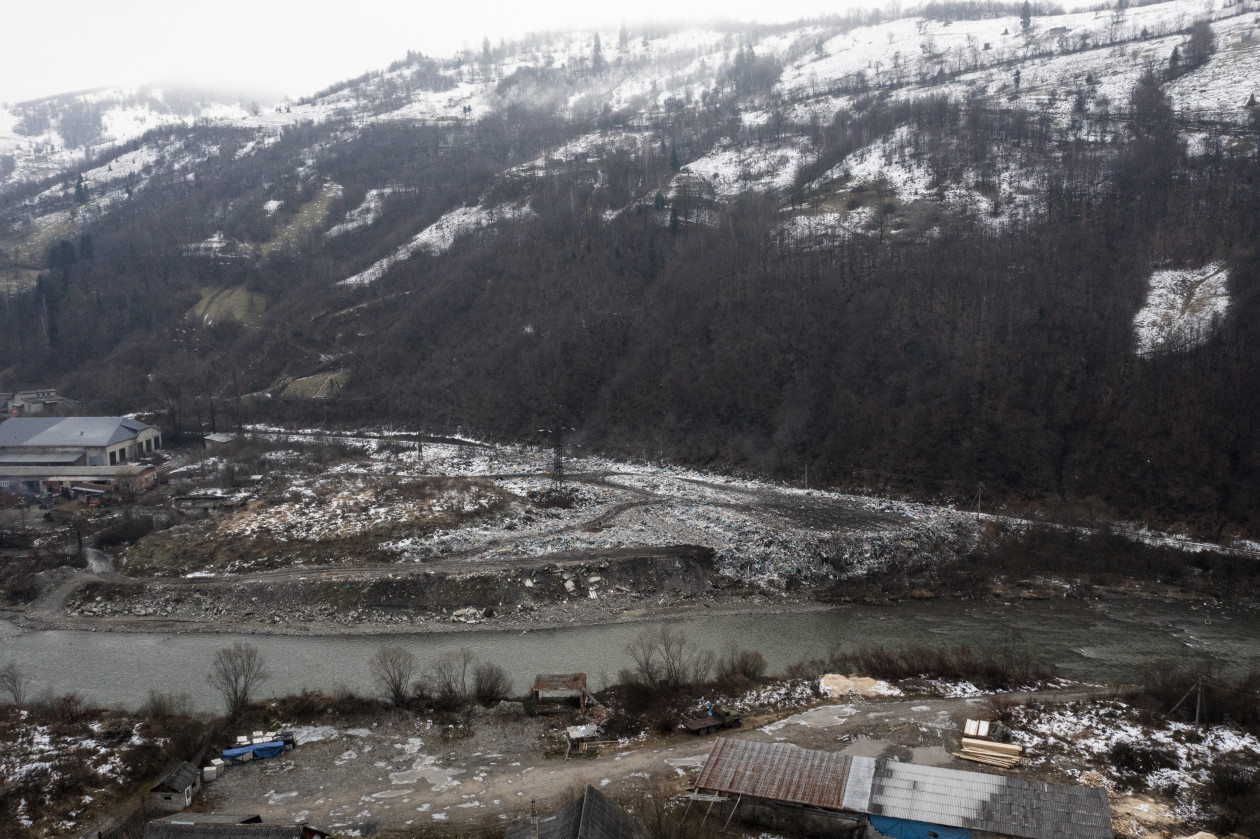
According to Chubirko, it is time for the Security Service of Ukraine (SBU) to come forward with evidence to support the accusations against the KMKSZ and Brenzovics in court, otherwise, the case, which has been keeping KMKSZ's president in Hungary for months now, needs to be closed quickly. "I've known Brenzovics for a long time, and I don't think he wanted to buy tanks." You can read our article about the situation in Transcarpathia regarding the tension between the Ukrainian and Hungarian governments here.
"Kyiv can say what it likes about separatism, but the EGTC is an EU organization," argued Chubirko, who believes that it's pointless to speculate anything political about these initiatives. It would be even better if the effect were instead reversed, and the cooperation being realized with Hungary's participation created an atmosphere for resolving disputes in other areas. All the more so since the lack of waste management will eventually become more than just a local problem.
"Time is not on our side, and we must convince the EU, otherwise it will be a disaster. Either they help us, or we won't know what to do," said the Ukrainian Transcarpathian politician, indicating what's at stake, which could be described by several adjectives from a negotiation point of view – we'll stick to "awareness-raising" for now – although it is undoubtedly a common interest that transcends borders to ensure that the waste doesn't float down the river or end up in illegal landfills. According to the head of the region, there are at least two hundred illegal landfills in Transcarpathia, in addition to only fifty legal ones.
It would require 100 million euros from the EU
Chubirko envisions a waste processing network in Transcarpathia with a center in each of the following five districts: Uzhhorod, Mukachevo, Khust, Tiachiv, and Rakhiv. These waste treatment plants would be built by 2030 and then owned by the municipalities, which would then operate them on a market basis. Collection in the south would be managed on a commercial basis, while in the north it could be handled with subsidies.
"We have three tasks to solve: collection, processing, and landfill structuring." All three tasks are by and large burning questions, but the third is especially so if we take it literally: The landfill in Uzhhorod will be able to accept garbage for another year or two, but work needs to start on it now. The waste compaction already taking place there must continue – AVE is already partly managing this. Also, care must be taken to discharge the gas produced by the decay – which has yet to begin in Uzhhorod – otherwise, there could be a repeat of the 2017 explosions and fires in the area, warned the regional leader, who has a degree in chemistry.
According to him, the entire Transcarpathian project, including collection centers, processing plants, new landfills, and the management of old ones – as well as the use of the gas produced there for electricity generation – would require €100 million.
It would require 100 million euros from the EU
Chubirko envisions a waste processing network in Transcarpathia with a center in each of the following five districts: Uzhhorod, Mukachevo, Khust, Tiachiv, and Rakhiv. These waste treatment plants would be built by 2030 and then owned by the municipalities, which would then operate them on a market basis. Collection in the south would be managed on a commercial basis, while in the north it could be handled with subsidies.
"We have three tasks to solve: collection, processing, and landfill structuring." All three tasks are by and large burning questions, but the third is especially so if we take it literally: The landfill in Uzhhorod will be able to accept garbage for another year or two, but work needs to start on it now. The waste compaction already taking place there must continue – AVE is already partly managing this. Also, care must be taken to discharge the gas produced by the decay – which has yet to begin in Uzhhorod – otherwise, there could be a repeat of the 2017 explosions and fires in the area, warned the regional leader, who has a degree in chemistry.
According to him, the entire Transcarpathian project, including collection centers, processing plants, new landfills, and the management of old ones – as well as the use of the gas produced there for electricity generation – would require €100 million.
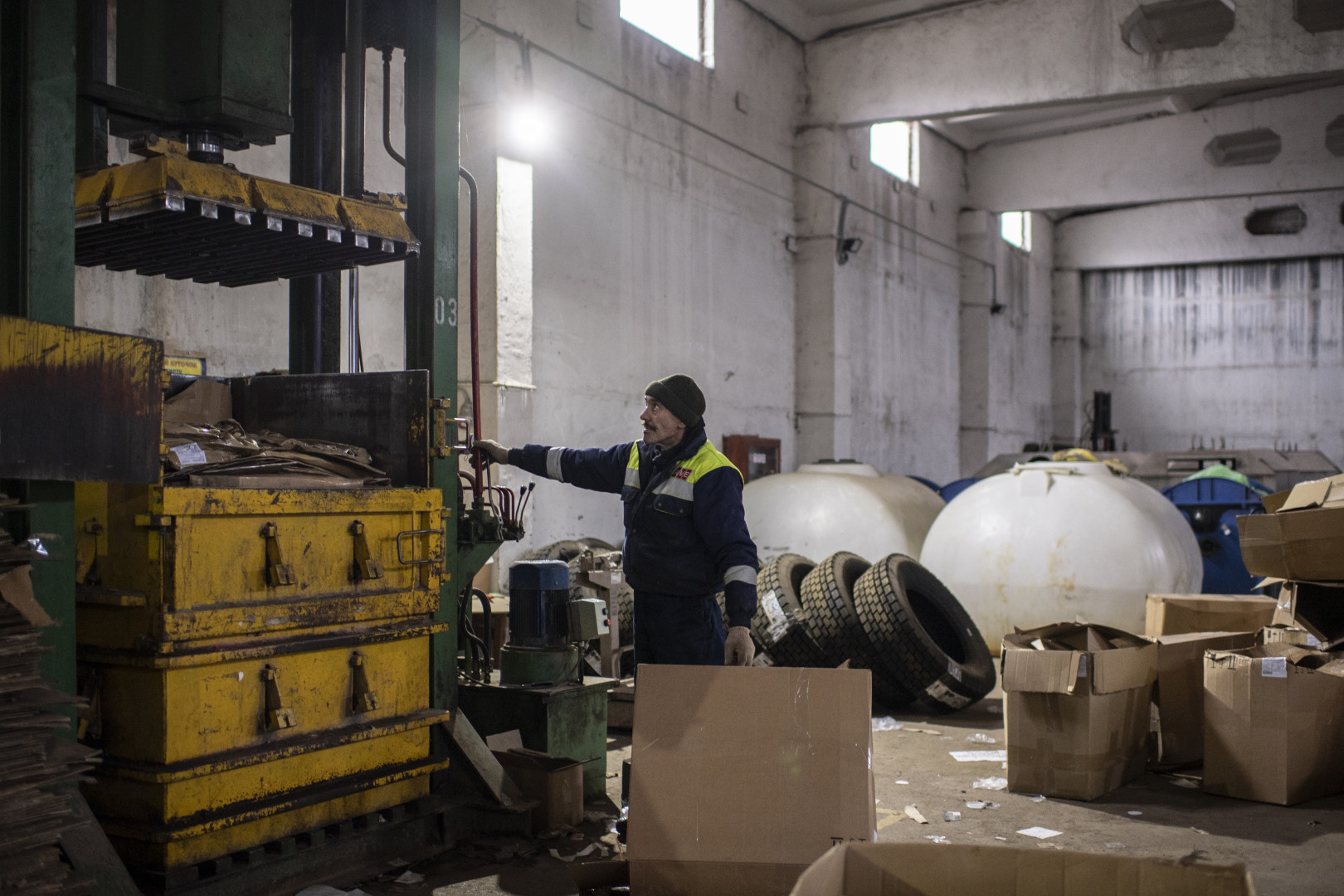
The waste management system will then be financially self-sustaining. The head of AVE in Uzhhorod is slightly more pessimistic than Chubirko. She says that a certain amount of budgetary support to run the waste treatment plants transferred to municipal associations will be needed in the future – but it will definitely be worth it if it prevents any more waste from ending up in the Tisza.
What is now a nuisance could actually be of value
The local waste treatment plant would also give a big boost to selective waste collection. The AVE is under no obligation to carry it out at the moment, due to the absence of precise legislation, but does so anyway. "If we had a processing plant closer by, our sorted waste would be of greater value. The way things stand, logistics eats up the money, so right now we are essentially performing a social service," said Natalija Jakubik, head of AVE's Uzhhorod office. Currently, the nearest waste processing plant to Uzhhorod that the collected plastic can be transported to is 360 kilometers away, beyond the Carpathian Mountains.
If it were nearby, the company could also transport the sorted waste in containers from a larger area of Transcarpathia. "If we drop off the container in a remote village, where it would be then ceremoniously inaugurated, we would not be achieving anything. In many places, regular collection is not possible without public subsidies. We too aim to keep the municipalities clean, but we are a commercial company," said Jakubik, who also considers it important to educate the public about waste management: AVE regularly organizes educational programs in kindergartens and schools.
The company's office in Uzhhorod serves an area of 160,000 inhabitants, transporting 700 cubic meters of waste a day – a fifth of which is sorted waste, according to optimistic estimates – or at least much less by cubic meter and by weight.
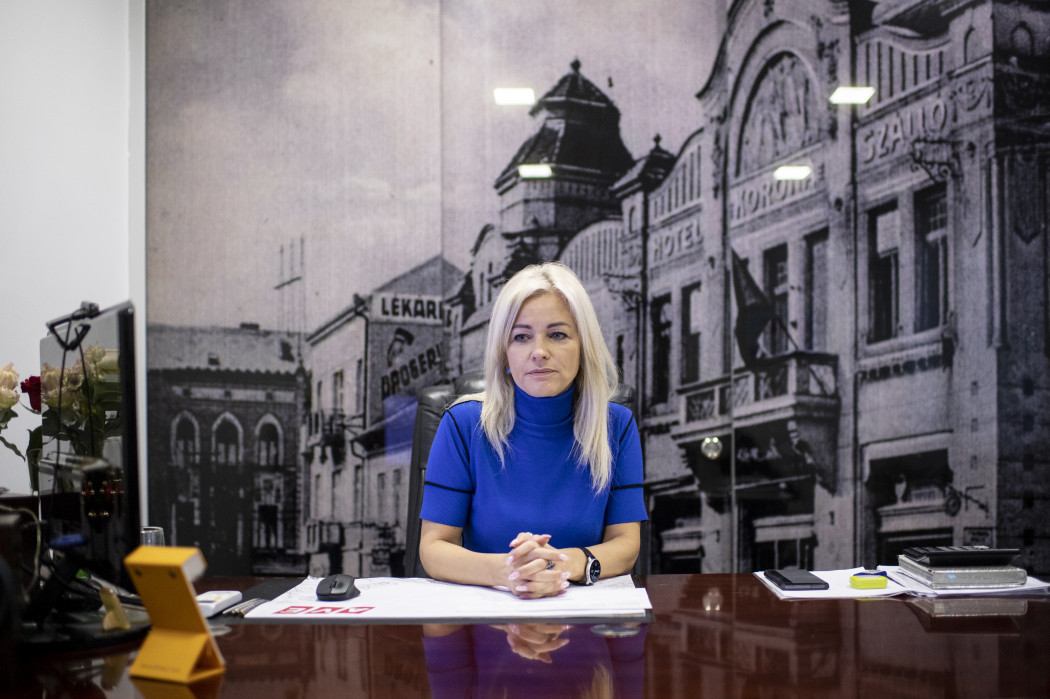
However, space in landfills is becoming dangerously scarce, even despite AVE's use of compaction in Uzhhorod, which uses 45-ton machines to compact a five-meter layer of garbage down to one meter. Due to the lack of landfills and processing infrastructure to reduce the amount of municipal waste, there are small-scale waste collectors, especially in the less accessible villages, who end up illegally dumping garbage in forests or floodplains. And residents may believe that it was properly disposed of.
"We've cleaned the Uzh's riverbed, sometimes it's in a horrible state. As long as the fines remain less than the cost of legal disposal, the situation will not change. The state must take action in this area too," said the company manager.
Lviv was once almost buried garbage
What is feared in Uzhhorod has already happened in Lviv, a city of 800,000 inhabitants on the other side of the Carpathians: it has not had its own landfill since 2016. A fire broke out at its last one, and three firefighters died during extinguishing operations when one side of the garbage heap gave way and buried them. It was then that the decision was made to close it.
AVE withdrew from Lviv's waste management operations after 2017, but the city still had to deal with waste disposal, which was complicated by political tensions. This led to the two-year-long garbage blockade in Lviv.
"Petro Poroshenko made sure that no one would accept waste from us, and he even enlisted the help of police to see it through. He wanted enraged locals to break into the town hall and throw me out the window. It didn't work, and I only became more popular because the people of Lviv understood who really instigated the situation," the Lviv mayor explained with regards to the background of the waste issue, referring to his dispute with the former president.
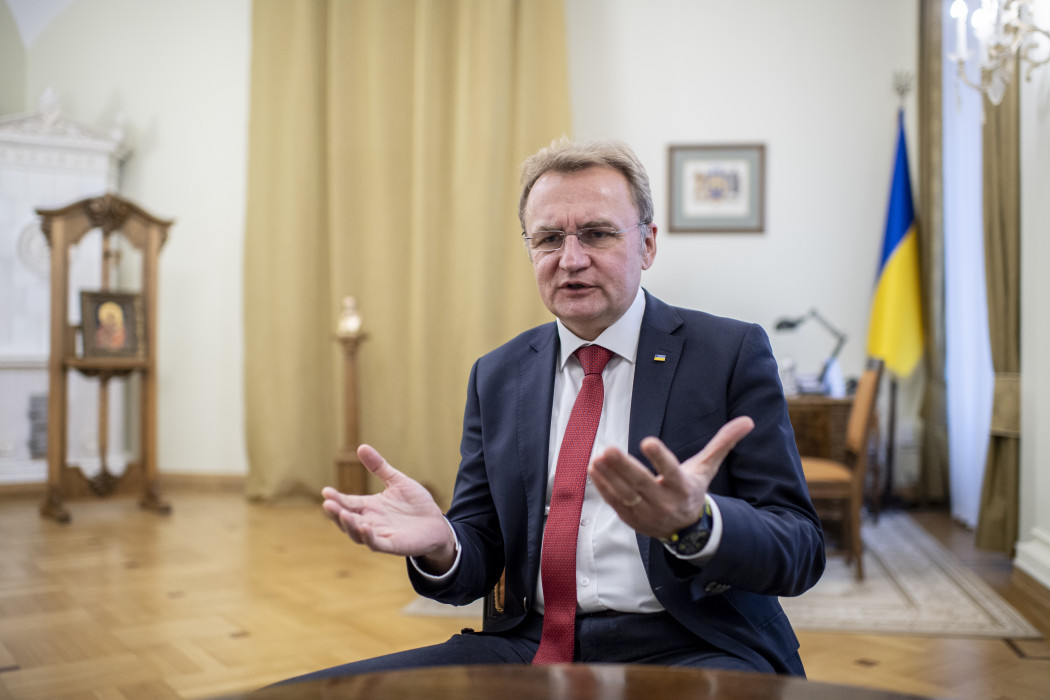
Shelling attack on the mayor's home
Sadovyi, who has been the city's mayor for nearly 16 years, has faced bigger threats than just defenestration by the public: in 2014, his house was mortared twice by unknown assailants. On one occasion, the mayor's family of five children was at home, but fortunately, no one was injured.
Sadovyi is, as his 16 years as mayor suggest, a major survivor of Ukraine's fluid political life. He started his career with the victorious Viktor Yushchenko in the 2004 Orange Revolution, before founding his own party in 2012. Self Reliance (Samopomich) had the third-largest parliamentary group in 2014 – the year his political conflict with President Petro Poroshenko began, to which he attributed the garbage blockade. True, Samopomich, which defines itself as a Conservative-Christian, Ukrainian force, ultimately failed to take hold in parliament as Sadovyi did in Lviv: the party only had one MP in the 2019 Rada.
Although Sadovyi leads Lviv, a western Ukrainian city that even during Soviet times was more Ukrainian than Russian, he does not make a political issue out of occasionally speaking Russian in public. In his view, speaking Russian does not imply an inherent loyalty to Russia, which he sees as a force charged with imperial ambitions. The Russian threat remains real, which is why he says it is justified to strengthen relations with NATO and EU neighbors Poland, Slovakia, Hungary, and Romania.
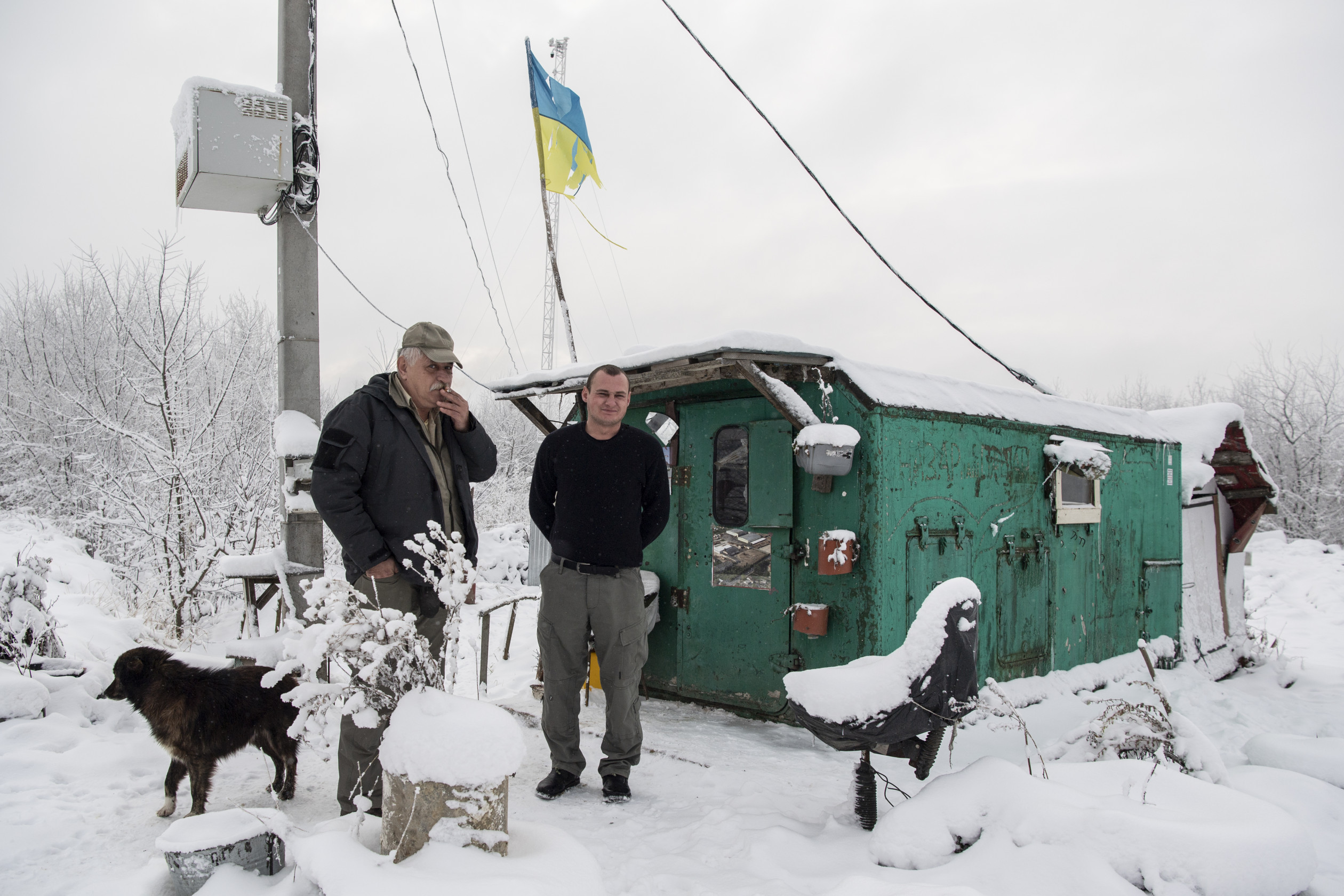
"The Polish still remember Soviet domination; Hungary may have forgotten it," he said, noting that relations with Hungary are still good, but that the problems – the part of Ukraine's Education Act concerning the use of languages, which Budapest believes is stifling Hungarian-language education in Transcarpathian public schools – could presumably be resolved in a face-to-face meeting between Prime Minister Viktor Orbán and President Volodymyr Zelensky.
From Europe's giant garbage dump to recreational center
So the mayor has survived the garbage crisis, albeit the city is still only operating with a temporary solution: it transports 600 tons of municipal waste a day more than 70 kilometers away and still has no landfill site of its own. The construction of a processing plant has already begun, and a composting facility is in operation as well. At the same time, recultivation work has started at the old landfill site, which could serve as an exemplary initiative. This is one of the largest landfills in Europe where such a project has been launched.
The highest point in historic Lviv – a city once part of the former Austro-Hungarian Empire's hereditary provinces as the Galician "Lemberg" – is the city's garbage dump, which had been collecting garbage since 1958 until it was closed in 2017.
In its 60 years of operation, the dump, which covers 38 hectares, has grown to a height of 110 meters. We stood at the top of the garbage heap with Nazariy Kyryleyza, a senior employee of the municipality's Green City company. The view of the city from there was magnificent, but I'm not giving any thought to what it would be like to look at the garbage heap from the city. Or at least that was until now because by 2025 the hill will be a verdant park with a recreational center and ecological center.
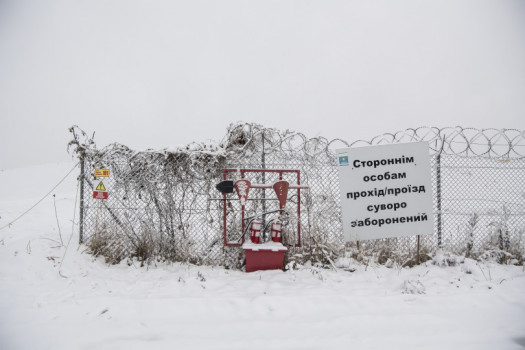
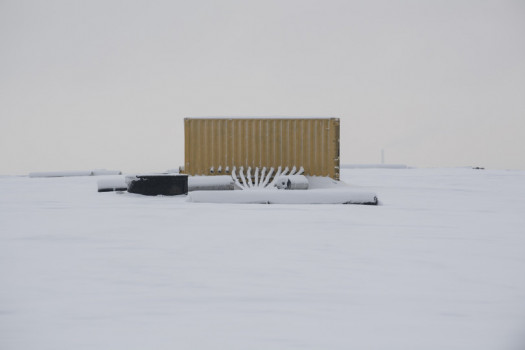
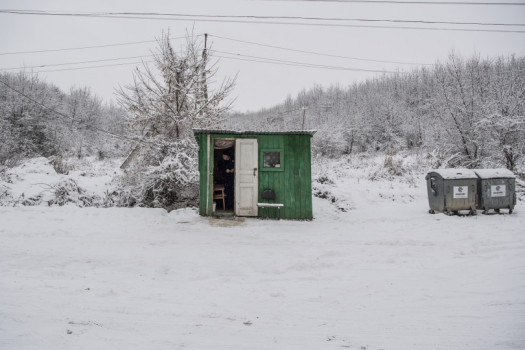
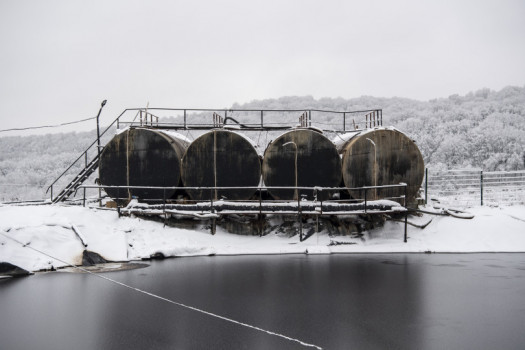
The first phase of work was completed this past fall: most of the 38-hectare hill was covered with a trilayer film. Rainwater can't get to it, pollutants cannot seep out of it, and the fermentation process is starting under the protective layer.
Before the hill was covered, it was perforated with piping. One of the systems discharges the gas from the fermenting waste, which has both safety and economic benefits: the accumulating gas is prevented from exploding, and it can be used to generate electricity. Its single megawatt output is not much – the Paks Nuclear Power Plant puts out 2,000 megawatts – but there is already a company specializing in this, which will economically produce the electricity for four to five years and then use the generator at a new reclamation site.
The other pipe system drains the liquid from the hill into an artificial basin, from where the mucky sludge is pumped out and filtered to produce what is essentially distilled water: 100,000 cubic meters of liquid are filtered in a single year.
In a short video, Liliya Zhitnyak, head of the filtration station, demonstrated for us what their work has achieved:
Lviv could serve as a good example
The reclamation tender was won by the Turkish project company Hayat Holding. The mayor estimates the total investment at €100 million, but the budget for the reclamation itself is €49 million. €10 million was won through a tender, €25 million is covered by a commercial loan, and €14 million by a soft loan from the European Bank for Reconstruction and Development (EBRD). "We got it for 15 years at an annual interest rate of 2.5%, which is very favorable," said Sadovyi, who said it would be possible to gradually increase the fees paid by the public for garbage collection. This is inevitable, but in the long run, everyone will benefit by preventing harm to the environment. "Since life has forced us to do it, we want to set a good example."
But the gradual increase in fees for residents could be mitigated by the fact that, once selective waste collection has been refined, Sadovyi believes that eventually there might not even be a fee for organic waste disposal because it will be possible to put it to good use at the composting facility in the city – a city whose highest point in three years will no longer be a garbage heap but a recreational park. "Believe me, pretty soon you won't even recognize the place."
This report was produced with the support of IJ4EU – Investigative Journalism for Europe.